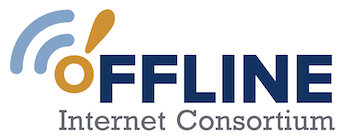THE TEMPE DECLARATION
EXTENDING ACCESS TO INFORMATION THROUGH OFFLINE INTERNET
19 February 2018
Digital technology offers unprecedented means to transmit, store, and utilize information. While a growing number of individuals and communities are able to benefit abundantly from the expanded opportunities that new technologies offer, many people live in regions where access to the internet is rare, inadequate, or non-existent. The resulting divide hampers opportunities for educational, cultural, economic, and social development.
A growing number of independent organizations and individuals strive to provide digital information access where internet access is limited. While making significant headway, such organizations are often unaware of others’ efforts, thus missing opportunities and technical advances that could be leveraged.
In order to explore these issues and to pursue solutions, Arizona State University Library and Bibliothèques Sans Frontières / Libraries Without Borders, with the involvement of IFLA (International Federation of Library Associations), organized an international summit from January 30 to February 1, 2018, at the ASU Library in Tempe, Arizona, USA.
Many of us have experienced the dramatic potential of the “offline internet,” meaning the systems and services designed to bring internet-accessible content to people and places without existing, adequate, and/or affordable network access. Participants perceived “offline internet” solutions as a key step towards enabling access to and mastery of digital information and education, as well as preparing users to participate fully in global communications.
At the ASU Tempe Summit, 30 participants representing 15 organizations discussed the key factors affecting major aspects of providing “offline internet” information to communities, institutions, and regions that currently do not have robust (or any) internet access.
As a result of these discussions, the active participants framed the following “Tempe Principles”:
- Access to the information commons should be recognized as a fundamental human right. We share a deep commitment to bringing meaningful, sustainable access to information resources for communities not well served by conventional access to the internet. This commitment is very much in line with the UN Sustainable Development Goals.
- We are forming a consortium that comprises people and organizations working together to identify common solutions, setting standards for software development, content indexing, and metadata, in the service of leveraging digital resources for communities that are not currently connected to the internet.
- We share the belief that common development of standards and practices can help all interested parties to achieve their goals and meet their information needs more easily and effectively. We therefore seek a more integrated, easily-mastered user experience of offline internet.
- We judge that open source and open access tools and content best meet the interests of the communities we seek to support. We also see a need to champion the sharing of copyrighted materials to underserved populations.
- Communities of interest to our consortium include mainly those the internet fails to reach: certainly those in remote locations, post-conflict or emergency situations, and refugee communities, as well as those whose disadvantage is political (governments do not support infrastructure and access), economic (lack of resources for easy access to broadband or data plans that support information access), and social (members do not have the education or experience to access digital information).
- We recognize the value of experimentation and exploration in developing and creating hardware devices that can function effectively in a range of challenges, from the personal to the enterprise.
- We will engage and empower our partners in underserved communities to design and develop technologies, as well as create content collections, as peers alongside consortia members.
- We expect to work in the space of not-for-profit and non-governmental organizations, while welcoming conversations with, on the one hand, governmental entities and, on the other, commercial enterprises that can focus attention and resources on this work in ways compatible with our principles and commitments.
- We will not, at this time, seek legal standing. Our governance will emphasize participation and collaboration and be open to organizations and individuals that share our principles and commitments.
- We believe that this collaboration can help us identify potential funders and make the case to them that there are good reasons to invest in our activities.
Our next steps are to proceed along three tracks:
- A governance group has been formed to propose overall structure, process, and identity.
- Working groups have been formed to propose objectives and goals in areas of software, hardware, content, operations, and advocacy.
- Meanwhile, certain agreed tasks will proceed on an informal basis. We warmly invite additional players, participants, and collaborators to endorse these Principles and join in this crucial work. The summit’s organizers are strongly supportive of this effort and pledge to remain actively involved.
We warmly invite additional players, participants, and collaborators to endorse these Principles and join in this crucial work. The summit’s organizers are strongly supportive of this effort and pledge to remain actively involved.
Organizations Attending the Summit:
-
- Arizona State Library Archives and Public Records
- Arizona State University Library
- BSF (Bibliothèques sans Frontières / Libraries Without Borders)
- eGranary
- Digital Library
- Gigabit Libraries Network
- IFLA
- INASP
- INEE
- Internet-in-a-Box
- Kiwix
- Learning Equality Library
- Box
- MAKAIA Foundation
- Rumie Initiative
- Sarawak State Library
- SolarSPELL (ASU)
- Sunna Design/Moon Project
- TEEAL
- WiderNet@UNC
- * World Health Organization (WHO)
* Observer Status

